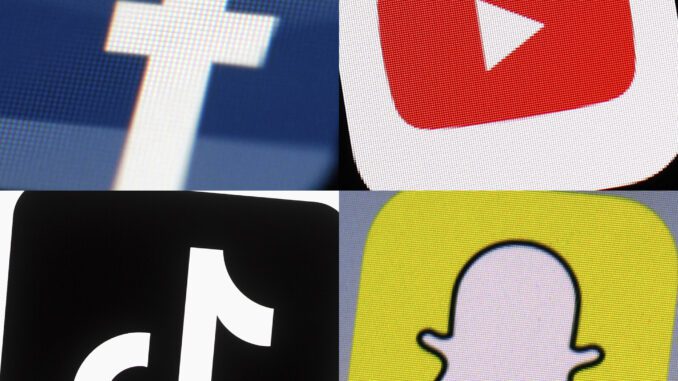
RALEIGH — North Carolina’s second-largest school district, Charlotte-Mecklenburg Schools (CMS), has filed a lawsuit against various social media giants over the “addictive nature” of their products and the negative impact on the mental health of children.
The more than 180-page lawsuit was filed on Aug. 24 in the U.S. District Court for North Carolina’s Western District. The filing lists defendants as Mark Zuckerberg’s Meta, the parent company of Facebook and Instagram; Siculus, Inc., a shell company linked to Facebook; ByteDance, TikTok’s parent company; Google; Google’s YouTube; and Snap Inc., the owner of Snapchat.
“American children are suffering an unprecedented mental health crisis fueled by Defendants’ addictive and dangerous social media products,” the lawsuit states. “In the past decade, Americans’ engagement with social media grew exponentially, nowhere more dramatically than among our country’s youth. That explosion in usage is no accident. It is the result of Defendants’ studied efforts to induce young people to compulsively use their products — Instagram, Facebook, TikTok, Snapchat, and YouTube. And Defendants have grown not just their user bases, but the frequency with which users use their platforms and the time each user spends on their platforms.”
The lawsuit goes on to say: “Defendants’ growth is a product of choices they made to design and operate their platforms in ways that exploit the psychology and neurophysiology of their users into spending more and more time on their platforms” and that those techniques are “both particularly effective and harmful” to children.
The complaint also claims the defendants have “intentionally cultivated children as users, creating a mental health crisis among America’s youth.”
The lawsuit was filed on behalf of CMS by Greensboro-area attorneys Janet Ward Black and Emily Beeson. Additional law firms listed as “of counsel” on the filing include Baird Mandalas Brockstedt & Federico, LLC, located in Maryland, as well as a San Francisco firm called Lieff Cabraser Heimann & Bernstein, LLP.
The plaintiffs are seeking an order to hold the companies liable and have their activities declared a public nuisance. Additionally, the lawsuit seeks relief from the court to enjoin the defendants from engaging in further actions causing or contributing to the public nuisance and an award of “equitable relief to fund prevention education and treatment for excessive and problematic use of social media.” The lawsuit also seeks “actual, compensatory, and punitive damages.”
“Nearly 200 school districts so far have joined the litigation against the parent companies of Facebook, TikTok, Snapchat and YouTube. The suits have been consolidated in the U.S. District Court in Oakland, Calif., along with hundreds of suits by families alleging harms to their children from social media,” according to a July report by The Wall Street Journal.
The Wall Street Journal also noted these lawsuits will have a hurdle to get over as social media giants have filed a motion to dismiss the cases claiming the companies are protected under the internet liability shield known as Section 230.
In 2022, the U.S. Surgeon General issued an advisory on Social Media and Youth Mental Health.
The advisory states, “Social media use among young people is nearly universal, with up to 95% of teenagers, and even 40% of children aged 8-12,” using social media platforms.
While the advisory says there are some positive aspects to social media use such as helping “marginalized” kids feel more connected to other children, the report also notes harmful trends such as poor sleep, perpetuating body dissatisfaction, eating disorders, social comparison and low self-esteem.
Other negative impacts reported include roughly two-thirds (64%) of adolescents being “often” or “sometimes” exposed to “hate-based content.”
Social media platforms sometimes show acts of suicide and self-harm content, “including even lived predictions of self-harm acts, content which, in certain tragic cases, has been linked to childhood deaths,” per the advisory.
Female youth are particularly affected by social media use and report low self-esteem issues. According to the advisory, “One-third or more of girls aged 11-15 say they feel ‘addicted’ to certain social media platforms, and over half of teenagers report that it would be hard to give up social media.”



